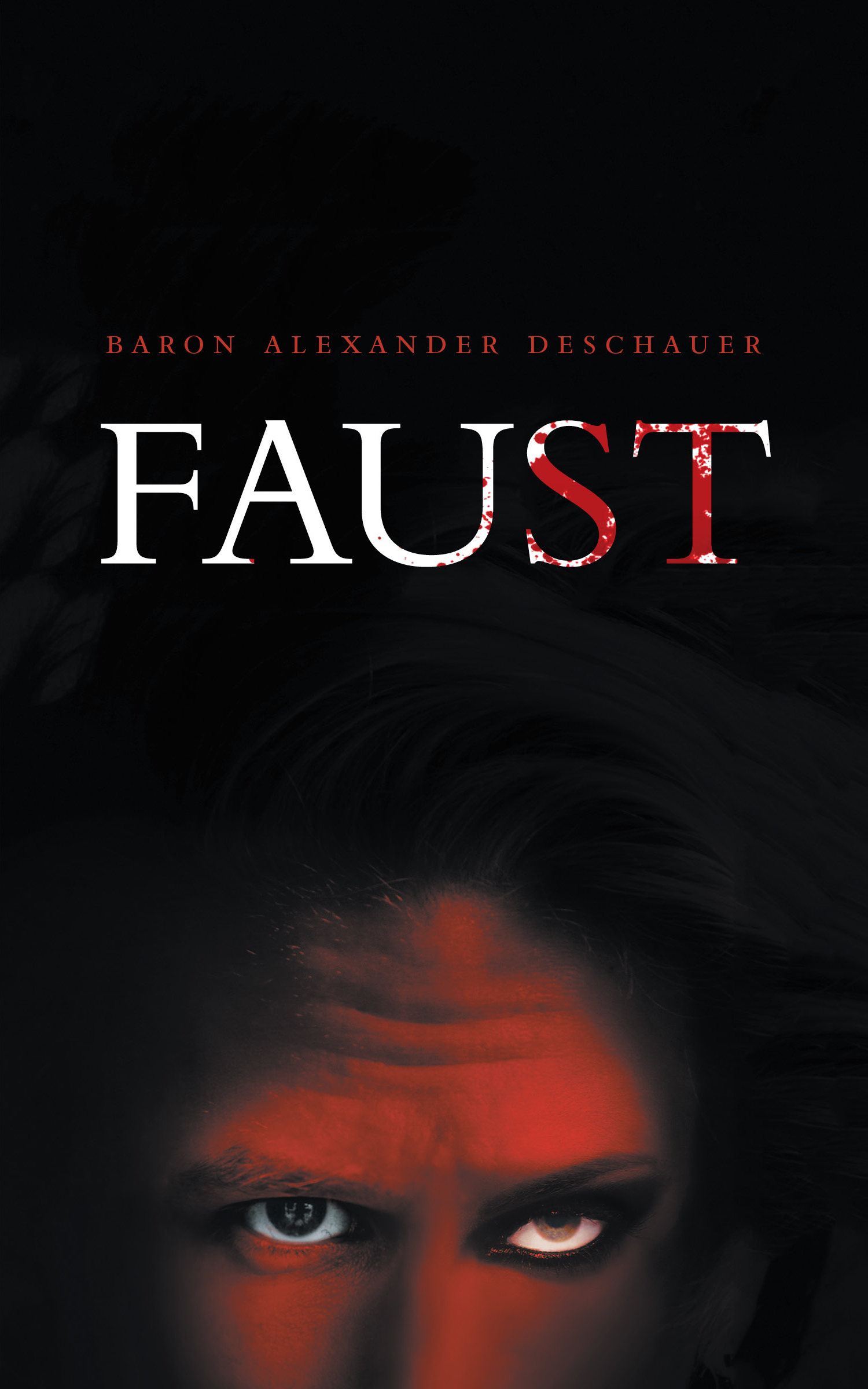
IMAGINE AN EXISTENCE WITHOUT A HEAVEN OR HELL.
No gods or demons. Just our thoughts and free will. In this
existence all life is interconnected and interactive within a greater
consciousness.
In contrast to Marlowe and Goethe, Deschauer presents a
cosmology and existence that is both individual and whole, flesh
and soul. Free will clashes with destiny, mortal with immortal.
It aims to justify the ways of God to humankind in an existence
devoid of God. Yet the inescapable construct of God, anti-
God and myth are embraced by humanity in its search to find
meaning within our reality.
IS LOVE THE MEANING OF LIFE? FREE WILL?
OR IMMORTALITY?
Genre: FICTION / Fairy Tales, Folk Tales, Legends & MythologyRecently published. Part of larger marketing campaign to be undertaken later this year/early next year as part of seven books published.
Faust is a timeless story of mortals seeking the knowledge
of the immortals. Perversely, Faust knowingly
exchanges immortality for mortality; uncertainty and
unknowability for certainty. But if death is already
a certainty, why gamble away one’s remaining chip?
Yet this we do, and this Faust does.
Originally of northern Germanic origin, the story
focused on a scholar dissatisfied with his life and the
level of learning available to him. To aid his discovery
of all things knowable, he sells his soul to the devil. It
is a myth with the devil servant being from a hell run
by Satan.
If we look back further in time, we come across the
ancient gods called Titans, one of whom was called
Prometheus. Prometheus stole fire from the gods for
humankind (which he created) only to be punished
by being bound to a rock and having his liver pecked
perpetually by an eagle (as he was immortal, the liver
grew back to endure the punishment each day). This
punishment was for his causing displeasure to the
gods (especially the most powerful god, Zeus). But
it was also a warning to other immortals to avoid
elevating mortals into gods.
The ancient poets such as Hesiod, Homer, Ovid
and Virgil set out the relationships formed between
the gods and mortals (the first two for the Greeks,
the latter for Romans). The origin of the gods and
their exploits were described with care. These works
continue to be studied to this day and provide insight
to the timeless truths of humanity and human nature.
| Language | Status |
|---|---|
|
French
|
Already translated.
Translated by Noury Afulay BAKRIM
|
|
German
|
Already translated.
Translated by Petra C. Rieker
|
|
|
Author review: Professional, and doesn't promise something she can't deliver. Highly recommended. |
|
Italian
|
Already translated.
Translated by Rachele Riccetto
|
|
Portuguese
|
Already translated.
Translated by Leandro Siriani
|
|
|
Author review: Leandro was a pleasure to work with. He created a realistic deadline and met it. Feedback on the translated work is excellent. I would highly recommend him. I was also pleased to see that the formatting of the translated manuscript was publication-ready. |
|
Spanish
|
Already translated.
Translated by Omar Rios Bernÿ
|